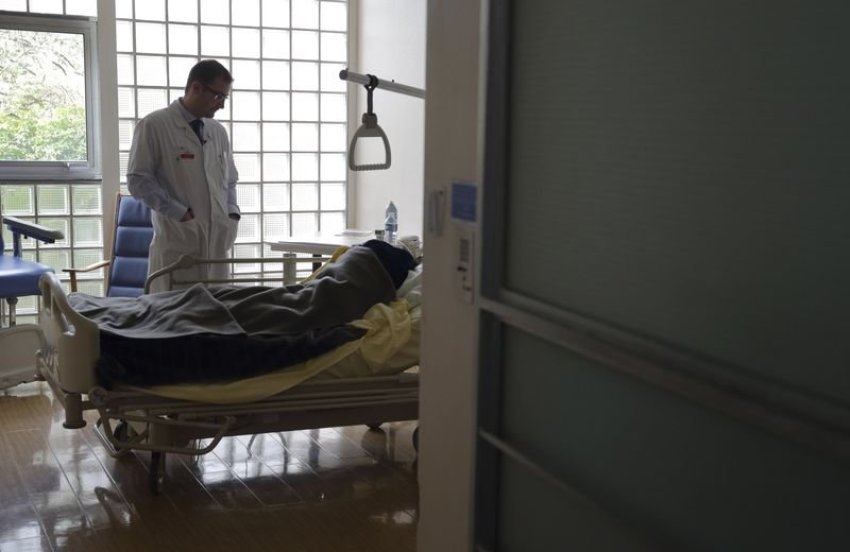Assisted suicide, euthanasia enhance people's quality of life, bioethicists argue

Bioethicists who support the death with dignity movement argue that using treatments to extend people's lives is less favorable for societies that would benefit from legalizing assisted suicide.
In the current edition of Clinical Ethics, an article titled "Counting the Cost of Denying Assisted Dying" by David Shaw and Alec Morton, both of whom work at the Institute for Biomedical Ethics at the University of Basel, Switzerland, say they support the legalization of euthanasia because, in their opinion, it would increase people's "quality-adjusted life years" by assisting them in ending their life after they've been diagnosed with an illness or incurable disease.
The assumption is that quality-adjusted life years are to be valued more than longevity, because generally speaking, most people are relatively healthy and able-bodied before their older years when sickness, disease, and injuries are more likely to occur. This point of view sees suffering as something that must be avoided and ended quickly by euthanasia or assisted suicide.
Morton and Shaw argue that one of the benefits of euthanasia is that medical equipment and treatments can be used on healthier patients instead of those who are terminally ill and have a shorter life expectancy. They write: "resources consumed by patients who are denied assisted dying could instead be used to provide additional (positive) quality-adjusted life years for patients elsewhere in the healthcare system who wish to continue living and to improve their quality of life."
They added: "[O]rgan donation may be an additional potential source of quality-adjusted life years in this context. ... Taken together, the cumulative avoidance of negative quality-adjusted life years and gain in positive quality-adjusted life years suggest that permitting assisted dying would substantially benefit both the small population that seeks assisted suicide or euthanasia, and the larger general population. As such, denying assisted dying is a lose–lose situation for all patients."
The idea that euthanasia and assisted suicide are beneficial to societies has been showcased prominently in medical literature and ads directed at patients in urgent care waiting rooms. It represents a shift in medical systems that no longer prioritize the preservation of life, particularly in western countries.
Many now favor the opinion that human beings are fully autonomous individuals who have the right to die at the time of their choosing. Concurrent with prioritizing the self-will of the individual in this sphere are considerations about cost-benefit analyses in healthcare systems.
Morton and Shaw further argue that data from Belgium — which along with the Netherlands has one of the most liberal euthanasia regimes in the world — "suggests that 10% of those accessing euthanasia could donate at least one organ. Even if only 5% of those seeking assisted dying are enabled thereby to donate their organs, but this leads to 12 additional QALYs being gained from the transplantation (bearing in mind that more than one organ may be made available), then the benefits may be substantial: 14,572 QALYs in the high scenario and 1,457 QALYs in the low scenario."
Writing in National Review Monday, Discovery Institute senior fellow Wesley J. Smith described the bioethicists' article "both immoral and amoral" because it "creates a disposable caste of people and reduces the sick and suicidal to mere beans for the counters to enter on spreadsheets."
"Normal people don’t think like these authors, which is why we should never cede power to the bioethics movement to determine the medical ethics and public health policies that impact us and those we love," he said.
Smith noted in a separate essay Monday that the Canadian Psychiatric Association recently articulated in a February position statement that denying mentally ill people the ability to end their lives if they choose is tantamount to "discrimination" on the basis of their disability, and that caregiving professionals must not attempt to talk them out of it lest their "bias" interfere in the patient's decision-making.
The idea that legalized euthanasia and assisted suicide is proving to be a "boon" for organ donation and therefore beneficial is also being furthered by some western media outlets.
In January, the Ottawa Citizen reported that Canadians who opt to end their lives through assisted suicide or euthanasia are saving or improving the lives of others by including tissue and organ donation in their final wishes.
The article held out as an example of virtue a woman who was on dialysis for several decades and was reportedly elated to know that her organs might be used to alleviate the suffering of someone on a transplant waiting list. The woman had worked for the Attorney General of Ontario whose office had helped write laws allowing the practice of what is euphemistically called "medical aid in dying" (MAiD) in Canada.
A term used when the dying process is manipulated to acquire healthier organs for a recipient, perhaps at the risk of the donor’s health and well-being, is called "titration of death.”
"The initial period was comprised of how long after cessation of heartbeat a person was dead and not dying. As things progressed, the organs from these donors were compromised by ischemia (decreased blood supply) and in many instances were not useable. But in this context, recipient need was considered a priority in contrast to donor dignity," Dr. Greg Rutecki, an emeritus at the Cleveland Clinic Internal Medicine program and emeritus fellow at the Center for Bioethics and Human Dignity, told The Christian Post in a previous interview.
"The ethical concern is that the dying process of the donor will be compromised in favor of a good organ, making the recipient more important than the donor. Rather than a dying experience with family and friends. The transition becomes a medical-technological spectacle, in essence focusing on a recipient and his/her organs rather than a human being who is dying."



























